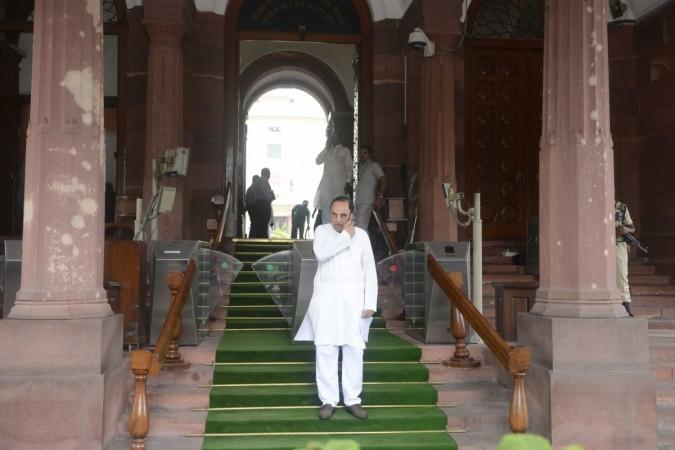
The Narendra Modi government is facing a tough time on the Goods and Services Tax (GST) front, but not from the Opposition. Subramanian Swamy, the Rajya Sabha member belonging to the ruling BJP, once again raised the "security" issue of the GSTN, or GST Network, the IT backbone of the indirect tax mechanism.
He was speaking in the Rajya Sabha on Wednesday, when the four enabling bills were being considered for passage after they were passed by the Lok Sabha last week.
"I wish to bring to the notice of this House a grave national security matter which should receive precedence before we consider the GST Bill, and that is a body private limited company which was created in 2013 called GSTN," the PTI quoted him as saying.
He wanted the House to take up the GSTN structure before considering the four GST Bills — CGST, IGST, UGST and Compensation Law — given the "grave security" aspect regarding the GSTN.
A few days ago, the Modi government had declined sharing information on security clearance to the GSTN under the provisions of the RTI, citing immunity.
"Any information related to security purpose is exempted from disclosure as per provisions of Section 8 (1) (g) of the RTI Act, 2005. Hence, the information sought cannot be provided," the home ministry said in reply to an RTI query.
Swamy had raised the issue last August also.
His principal opposition stems from the the shareholding pattern of the GSTN; while the Centre and the state governments have a total ownership of 49 percent, the rest is owned by private entities HDFC, HDFC Bank, ICICI Bank, NSE Strategic Investment Company and LIC Housing Finance. Therefore, it can't be subject to audit by the CAG or fall under the ambit of RTI.
"This is a kind of a shady organisation that is coming into being," Swamy said in the Rajya Sabha and sought to know if it would be restructured as recommended by a House panel that wanted the ownership to rest with state-owned banks and institutions.
State-run insurer Life Insurance Corporation of India has 40 percent stake in LIC Housing Finance, according to the housing company's latest shareholding pattern uploaded on the BSE website.
The GST implementation is at the final stages before it is rolled out on July 1, 2017, as planned. The apex decision-making body for implementing it — the GST Council — will be doing the most-critical job of fitment of goods and services to the four tax slabs, 5, 12, 18 and 28 percent.
'GSTN with majority pvt shareholding, can't be audited by CAG & can't be accessed through RTI': Dr @Swamy39 https://t.co/Lxx00x1Q9A
— Ajay Kumar (@ajaykumar_skm) April 5, 2017

















